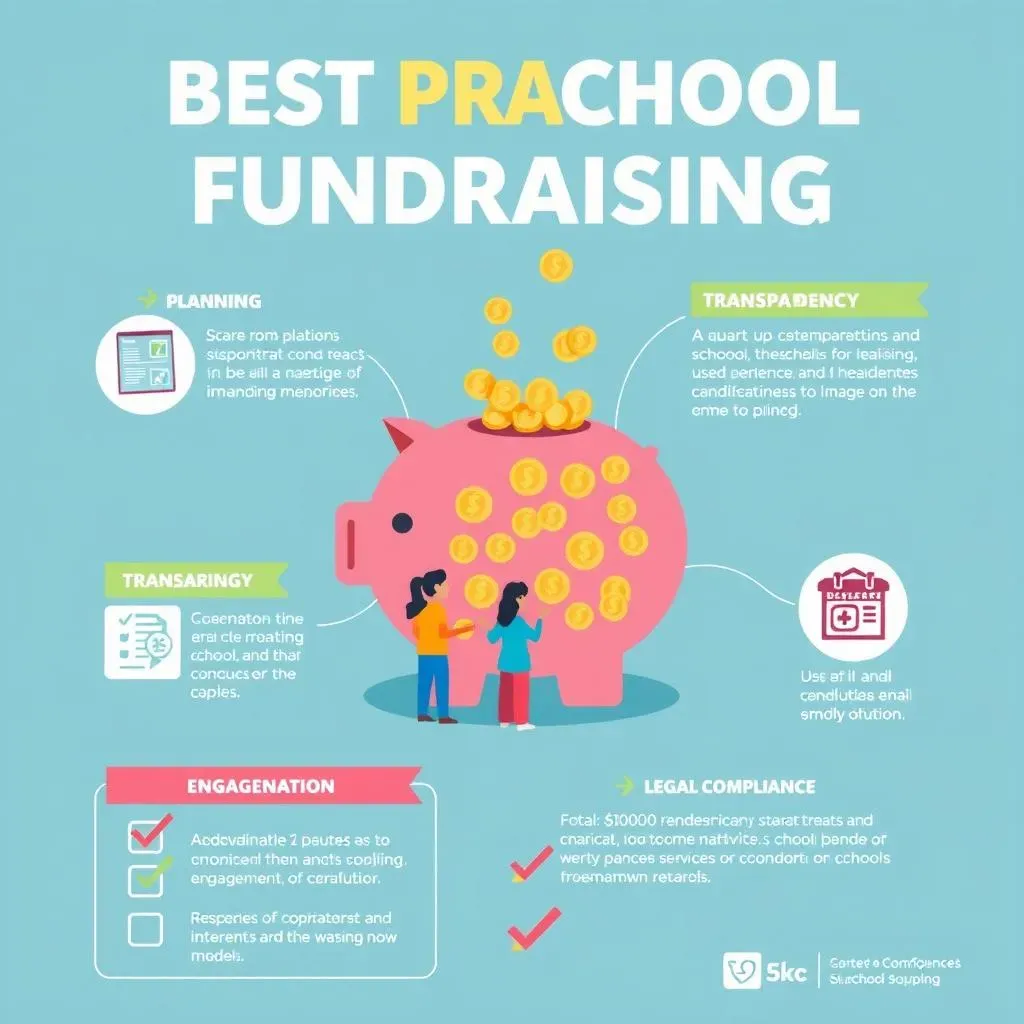Table of Contents
School fundraising is vital for enriching educational experiences, but navigating the legal landscape can be tricky. This article serves as your comprehensive guide to understanding "School fundraising regulations in the United States," ensuring your fundraising efforts are both successful and compliant. We'll break down the complexities of federal regulations, providing a clear overview of the key laws and guidelines you need to know. Then, we'll dive into the world of state-specific rules, highlighting the variations across different states and how to ensure you're meeting all requirements in your area. Finally, we'll equip you with practical best practices and strategies to avoid common pitfalls, maximizing your fundraising potential while staying on the right side of the law. Whether you're a seasoned fundraising veteran or just starting out, this guide will empower you to confidently plan and execute ethical and effective fundraising campaigns that benefit your school community. Prepare to become a fundraising expert, transforming your fundraising efforts from stressful to successful!
Understanding Federal Regulations for School Fundraising in the US

Understanding Federal Regulations for School Fundraising in the US
So, you're diving into the world of federal regulations for school fundraising? Welcome! It's a fascinating (and sometimes bewildering) area. The big picture is this: while states have their own rules, the federal government sets a baseline, primarily focusing on tax implications and student privacy. Let's start with the Internal Revenue Code (IRC) Section 501(c)(3). This is the cornerstone for most schools. It grants tax-exempt status, meaning donations are often tax-deductible for donors – a huge incentive! But, it comes with responsibilities. Schools must adhere to strict guidelines on how they use funds, ensuring they're aligned with their educational mission. Think of it as a contract: tax benefits in exchange for transparency and accountability.
Next up is the Family Educational Rights and Privacy Act (FERPA). This is all about protecting student data. Schools can't just share student information willy-nilly for fundraising purposes. FERPA sets limits on what can be disclosed and how it's used. This is super important, both legally and ethically. Violating FERPA can lead to serious consequences. Think about how you'd feel if your child's personal information was misused – that's the kind of protection FERPA provides. For more on effective fundraising strategies, check out our guide on tips for successful campaigns.
Federal Law | Key Focus | Impact on Fundraising |
|---|---|---|
IRC Section 501(c)(3) | Tax-exempt status | Tax-deductible donations, reporting requirements |
FERPA | Student privacy | Restrictions on data use for fundraising |
Beyond these two, other federal laws might indirectly impact fundraising. For instance, anti-discrimination laws ensure equal opportunity in fundraising activities. It's a complex web, but understanding the basics of 501(c)(3) and FERPA is a great start. Need some fresh ideas for your next fundraiser? Check out our post on elementary school fundraising ideas!
Remember, this is just the tip of the iceberg. There are nuances and specifics within each law, and it's always best to consult legal counsel for personalized advice. But, by understanding these core federal regulations, you're already miles ahead in ensuring your school's fundraising efforts are both effective and compliant. Still have questions? Our FAQ page might have the answer!
- Understand 501(c)(3) tax implications.
- Prioritize FERPA compliance for student data protection.
- Consider broader anti-discrimination laws.
- Consult legal counsel for specific guidance.
StateSpecific School Fundraising Regulations and Compliance

StateSpecific School Fundraising Regulations and Compliance
The Wild West of State Laws
Okay, buckle up, because this is where things get interesting. While the federal government sets the stage, each state has its own set of rules regarding school fundraising. Think of it like a patchwork quilt – beautiful, but with a lot of variation. Some states might have strict regulations on what types of fundraising are allowed, others might focus on registration requirements, and still others might have specific rules about how much money can be raised or how it can be spent. It's crucial to know your state's specific guidelines. Ignoring them could lead to fines or other penalties. For example, some states might require schools to register their fundraising activities with the state attorney general’s office or a similar agency. Others might have specific regulations about raffles or other types of fundraising events. Need a hand planning your next event? Check out our guide on organizing a school fundraiser.
- Registration Requirements
- Specific Event Regulations (Raffles, etc.)
- Fundraising Limits
- Spending Restrictions
Finding Your State's Rules
So, how do you find this information? The best place to start is your state's education department website. Many state education departments have sections specifically dedicated to school fundraising, outlining rules, regulations, and best practices. You can also check with your state attorney general's office, as they often oversee charitable solicitations. Local school districts may also have their own policies and procedures that supplement state-level regulations. It's a good idea to check with your school's administration to ensure you're following all applicable rules and regulations. Looking for creative fundraising ideas? See our post on unique high school fundraising ideas!
Resource | Information Provided |
|---|---|
State Education Department Website | State-specific fundraising guidelines, rules, and best practices |
State Attorney General's Office | Information on charitable solicitations and legal requirements |
Local School District | District-specific policies and procedures |
Staying Compliant: A Proactive Approach
The key to success is being proactive. Don't wait until you're in the middle of a fundraiser to start researching your state's regulations. Start early, familiarize yourself with the rules, and make sure your fundraising activities comply. Keep meticulous records of all fundraising activities, including income, expenses, and donations. Maintain transparent financial reporting to build trust with donors and demonstrate your commitment to ethical fundraising practices. Remember, compliance isn't just about avoiding penalties; it's about building trust with your community and ensuring the long-term success of your fundraising efforts. Want to make your fundraising more eco-friendly? Check out these eco-friendly ideas!
“Compliance isn't just about avoiding penalties; it's about building trust.”
Best Practices and Avoiding Pitfalls in US School Fundraising

Best Practices and Avoiding Pitfalls in US School Fundraising
Planning and Transparency
Let's talk strategy. Before you even think about bake sales or car washes, create a detailed fundraising plan. This isn't just about choosing an event; it's about setting clear goals, identifying your target audience, and outlining your budget. Transparency is key here. Be upfront about how the funds will be used, and keep your donors informed of your progress. This builds trust and encourages continued support. A well-structured plan also helps you stay organized and manage your resources effectively. Need some inspiration? Check out these fundraising ideas for sports teams.
- Define clear fundraising goals.
- Identify your target audience.
- Create a detailed budget.
- Maintain transparent communication with donors.
Effective Communication and Engagement
Communication is everything! Make sure your message is clear, concise, and engaging. Use a variety of channels to reach your audience – email, social media, school newsletters – whatever works best for your community. Engage parents and students by involving them in the fundraising process. Consider creating a school fundraising committee to share the workload and foster a sense of collaboration. This participatory approach not only boosts morale but also encourages a wider range of fundraising ideas. For more ideas on boosting engagement, see our post on engaging parents in fundraising.
Communication Channel | Advantages |
|---|---|
Direct, personalized messaging | |
Social Media | Wider reach, visual engagement |
School Newsletters | Traditional, reliable communication |
Legal Compliance and Record Keeping
Remember everything we discussed about federal and state regulations? Staying compliant is not only essential for avoiding legal trouble, but it also builds trust with your community. Keep meticulous records of all financial transactions, including income, expenses, and donations. This is crucial for accountability and transparency. Regularly review your fundraising practices to ensure you're up-to-date on all relevant regulations and best practices. Need help with fundraising letters? We've got best practices for fundraising letters you can follow!
"Compliance isn't just about avoiding penalties; it's about building trust."
